Billy Porter on the ending of Pose and what comes next
Emmy, Grammy, and Tony-winner Billy Porter will keep on marching through the doors Pose has opened


Billy Porter seems in no mood for woeful lamentations on the end of Pose. The morning after the cast and creators of FX’s landmark drama had gathered for a glamorous, COVID-safe, and reportedly eventful season-three premiere at New York City’s Jazz at Lincoln Center, Porter, speaking by phone from his hotel room, is still in a spirit of revelry.
Rather than dwelling on the series’ end after three action-packed, award-winning seasons — including a 2019 Outstanding Lead Actor in a Drama Emmy for Porter — the stage and screen vet is here to celebrate all that Pose did and said for the Black and Latino LGBTQ+ community. And he sounds especially grateful for what the show’s producers — including creator Steven Canals, executive producers Ryan Murphy and Brad Falchuk, and writer-director Janet Mock — allowed him to express through his character Pray Tell, elder statesman of the ’90s NYC queer ballroom scene the show depicts.
“Ryan Murphy asked me what I wanted to say,” recalls Porter of the season’s fourth episode, scheduled to air Sunday, May 16, in which Pray Tell returns to his Pittsburgh hometown for a soul-tugging reckoning with his estranged family and the intolerant side of the Black church. “I said, ‘I want to say this,’ and they wrote it for me. For real. Have you ever seen anything like that before?”
Television has never seen anything like Pose before, a major cable network drama about Black and Latino queer culture, set in an era ravaged by homophobia, racism, drugs, and AIDS, starring a vibrant cast comprised mostly of queer actors of color, delivering stories largely written and directed by queer creators. Yet, as Canals explained at a season three press conference, the show set sail with a particular endpoint already on the horizon.
“From the very beginning, from the moment that Ryan Murphy and I first met to talk about what Pose could be, we had a very specific ending in mind,” Canals said. “And if you go back to the first season, everything was a setup for this final chapter.
“So every choice was intentional, and everything that we’ve done this season was leading up to the story that we tell. To synthesize it very simply, it’s us finally allowing our characters to explore what it means to have all of the things that they very clearly stated in the first season that they wanted. And so now this final season is an exploration into, once you’ve accomplished the dream, is it everything that you wanted? Is it everything that you wished it would be? Is it quite as shiny as you imagined it to be?”
The series paved new roads for its characters and for all the artists who had a hand in building the House of Pose. It also opened doors and windows for other artists to leap through. And Pray Tell’s homecoming episode is just one powerful manifestation of that.
“I’m right in there with all them aunties and in that church and singing that gospel music,” says the performer, who recently signed a new record deal with Republic. “[The Black church] is a complicated and complex space, and we don’t talk about it enough. It goes unchecked. It’s a secret all the time and we can’t heal when we have secrets. We can’t move forward when it’s all about secrecy and shame. I’m really, really grateful for Pray Tell and Pose in this season. I really am grateful to be at that intersection. It’s the beginning of it, I think. This season for me playing Pray Tell is the beginning of creating that conversation in a real way and not a divisive way.”

METRO WEEKLY: I want to start by saying that it took me five tissues — I counted — to get through the finale episode. I ugly cried through it. How many tissues did it take you?
BILLY PORTER: Oh, a whole box. It’s beautiful. There’s a lot behind it for me, being able to actively tell this story, to know that that was my point. In my life, I made a conscious decision and choice many decades ago to really use my art as a tool and an agent for change. This is a result of that for me, and I’m gobsmacked. I really am.
MW: There are many highlights in this season for me, one being Pray Tell’s trip home to Pittsburgh, which is also your hometown. That episode is like a Legends Ball for fans of Black pop culture, with Anna Maria Horsford, Janet Hubert, Jackée, Norm Lewis, and Ledisi singing. Please tell me about shooting that episode.
PORTER: And B. Slade! Don’t forget B. Slade at the piano. Tonéx aka B. Slade. That was on purpose. You know who he is, right?
MW: I don’t.
PORTER: B. Slade, who was the one at the piano singing with Ledisi, was a very popular gospel recording artist by the name of Tonéx. He came out, and true to form, the church put him out, and he became B. Slade. The reason why I wanted to use him was for people who know who he is — that’s another part of the conversation I’m trying to have. Because for me, growing up in the church and being queer, being LGBTQ+, the Black church is dangerous for us. And I’m sick of not talking about it. It’s time to talk about it, and it’s time to come to a different understanding.
It’s my subversive way of saying, “We’re not going anywhere.” You can’t cherry-pick your Bible verses to control us, and weaponize the Bible against us when we’re asking for our own rights. We’re still fighting for our own Black rights. Yet we, as Black people turn around and oppress another group of marginalized people, from the same Bible that the white folks used to oppress us. What are we doing? Stop it.
Ryan Murphy asked me what I wanted to do and what I wanted to say with Pray Tell, and I said, “We need to talk about the church.” One thing we need to do is talk about the Black church and the Black church’s relationship to the LGBTQ+ community, because it has to get better. If anything is going to change in this world, that has to get better, and we have to hold each other accountable. I don’t care if you don’t agree, that’s not what we’re talking about here. Separation between church and state, we’re not talking about that here. If I’m going to hell, that’s my choice. I don’t believe the way that you believe, and that’s okay, too. But you don’t get to create legislation against me because we don’t believe the same way. Like, what are we doing?
MW: This reminds me that beyond representing the LGBTQ+ community on screen, you and the cast have taken it upon yourselves to do that offscreen, too. Have you felt the mantle of being role models while on this show?
PORTER: Well, I asked for it. I can only speak for myself. I asked for this space because I grew up with no representation. And the audacity to wake up one day and realize that you may be the answer that you’ve been looking for the whole time. It’s like, “Oh, I’ve been looking for somebody else to do this when in fact it’s my calling, it’s my purpose, it’s my ministry. This is the reason why I’ve been placed on this earth. Step up bitch, step up!” And to have something like Pose create the platform for me to do this work is humbling and inspiring, and I am so grateful to have it.
MW: I feel like this season sort of rubs in the audience’s faces what we’ll be missing, and that in a way we might’ve taken Pose for granted. Scenes like the one in the finale episode of Blanca, Elektra, Lulu, and Angel having their ladies who lunch moment. And the whole romance between Ricky and Pray. Is there any sense of, we really won’t know how much we’ll miss you until you’re gone?
PORTER: I don’t really think about things like that, because I’m focused on the work. I’m focused on doing the work, talking about the work, putting it out there, and letting the chips fall where they may. That’s all the power I have. All the power I have is in how I show up for the work. So I hope that the legacy of the show creates a space for the folk coming behind us to know that they’re not alone, and that they will be empowered. To dream beyond their circumstance and go after whatever it is that they want in life.
We deserve all of the things, and I think that’s what Pose creates. It’s aspirational in that way. And it takes a group of marginalized people that the world has thrown out and says, “You are worthy and you are enough just as you are.” That’s what we’re saying, and it’s profound.

MW: When did you learn that this season would be the last? Did that make any of the work more challenging or even more exciting to do?
PORTER: Honey, I’ve been in this business so long that it is what it is. We’ve gotten to the end of this story. It’s a very specific story. It’s not a story that goes on for 18 years. It’s a very specific one, and the goal of our writers and creators from the very beginning was to tell the story until we get to the antiretroviral drugs. That’s ’96. We’re there. We told this group of people’s stories. We’ve told it.
The last thing you want it to become is filler just because it was a hit. That’s what happens a lot. You get a hit show and then it’s on the air too long. And then it becomes filler, then people forget how brilliant it was because you’ve been on the air too long. And then the show has jumped the shark and all people can talk about is how it’s jumped the shark, and not how brilliant it was for the first three seasons when that was the story, you know what I mean?
It’s time for it to be over, this one, and time for us to tell a new story. We’re not going away. This has just started. This whole community that has been cracked open to the whole world, now has a space to tell all different kinds of stories. And it ain’t just Pose. It’s a bunch of new stuff ready to happen now because we set the table.
MW: You brought up antiretroviral drugs. Something that stuck out to me about the depiction of ACT UP in the show is that the organization is shown as being more diverse than I’ve seen either in real life, in documentaries, or in other films. Obviously, that’s what the writers and creators wanted to do. What’s your opinion on that sort of revisionist take on ACT UP?
PORTER: I don’t feel like it’s as revisionist as it may seem. I was a part of ACT UP. My first Pride parade, I went with some friends. I showed up, I didn’t know where I was going, I didn’t know what I was doing. They were white, I was not. I was late.
I showed up, they were already marching. My friend pulled me into the crowd and threw a t-shirt over my head that said, “Silence equals death.” And we started marching down the street going, “Act up! Fight back! Fight AIDS!” No, there were not a whole lot of Black people, but there were some, and lots of women.
I don’t know what else to say. It’s different for us. It’s always been different for us. We’ve always been in the back. We’ve always been in the shadows. We’ve always come second. We’ve always come third. We’ve always come last. We always have. And Pose highlights that. Now the conversation is different in this moment. For me, I hope that that is what audiences can take away from it. And in the process of what we’re going through now, can make different choices as a result of seeing that. Because we talk about it.
I say [on the show], “I don’t want to be around all these white people. They don’t care about me,” the first time we go to the ACT UP rally. I was happy that I was there, because I actually was there. I was one of the Black people that was there.
MW: The show, through the story of the drug trials, talks about the inequities in the fight against AIDS. It’s similar to the inequities we see with the pandemic today. Given that you were marching and the lessons you learned then, what have you thought watching some of the same stuff play out?
PORTER: Well, I just wish people would call it what it is. I wish people would call it genocide because that’s what it is. That’s what it’s always been. And what frustrates me is I turn on the news and I watch everybody debating “both sides” — there is no both sides. There’s one side. The side of oppression, the side of white supremacy, the side of power at any cost. That’s the only side there is, at any cost. What are we debating?
That Derek Chauvin trial was like watching an episode of How to Get Away with Murder. I’m like, “Right, this shit is real.” It doesn’t matter what the truth is, it matters who debates the best. That’s what your law and order means, who debates the best, not the truth, but who debates the best. So what’s happening? What’s actually happening? There is no law and fucking order. [It’s] who has the better education and who can debate the best.
And since there ain’t no public education no more, of course, the dominant caste has the people who can debate the best, most of the time. What they don’t know is that Black people have educations now, too. I’d go back to that time when Kamala Harris was grilling Jeff Beauregard Sessions and asking him questions, early in Trump’s presidency. He was so flummoxed, because he couldn’t believe that this “nigra” girl had more education than him, was better at his job than him. That’s not how it’s supposed to go. This is what we’re still dealing with. And I love Pose in this intersection, because it speaks of the parallel, and how, yes, we’ve come so far, we still have yet so far to go. It’s hard to take, it’s hard to stomach.
MW: I’m always shocked to see Kamala Harris seemingly underestimated, but it happens again and again. I guess that’s the story of constantly being underestimated, and not wanting to, but having to prove yourself.
PORTER: At your peril honey. Underestimate us at your peril.

MW: I’m going to swerve a little, and talk about other work, because I just learned today that you are doing Greg Berlanti’s film adaptation of Little Shop of Horrors, which is one of my all-time favorite musicals. Is it happening, has it happened?
PORTER: Well… that’s no longer happening.
MW: [Gasps.] What happened?
PORTER: It’s been postponed. I don’t know. I just got a call one day that said it was postponed. It may come back, it may not. But that’s off right now.
MW: We interviewed Berlanti in this magazine a while ago, and he was talking about it, so I’m going to keep my hopes up that we see it at some point. I think the first place I ever saw you was in his film The Broken Hearts Club. Now he produces like half a dozen DC Universe shows. Were you ever invited to don superhero or supervillain tights for any of those Arrowverse shows?
PORTER: Uh-uh.
MW: Are you interested in joining any superhero kind of stuff?
PORTER: I would love to join superhero stuff. I think I’m at the age now where I would need to be the boss at the control station, who did it already and who’s serving wisdom, because I’m 51 years old. [Laughs.] They’re children doing that, doing all that stuff.
MW: Another Broken Hearts Club question, because I’m a huge Frasier fan. Do you have any memories of your co-star John Mahoney that you’d like to share?
PORTER: Awww. He was such a sage for all of us, particularly the gay boys who were in it, because he was gay. And he was gay at a time when you weren’t allowed to talk about it. He was also a character actor, so nobody was harassing him about it. So he could just live his life. He could live his life in relative secrecy. He really, really was so supportive of the new generation — aka me — at the time. Those of us really longing to create a space for ourselves where we could be true and we could be real. He was inspiring and encouraging about that for us, and he’s like, “It’s time, and it’s your generation that’s going to do it.” It was a wonderful, wonderful relationship and rapport that we had.
MW: That’s lovely to hear. I spoke to another of your former co-stars recently, Sam Harris. We spoke about his musical memoir Ham, which you directed Off-Broadway, and he spoke so highly of you as a director. Are you planning to do more directing?
PORTER: I’m directing my first film this summer. It’s called What If. It’s for the relaunch of Orion Pictures which is under the MGM banner. It’s a rom-com in the spirit of those old John Hughes movies, about a transgender high school girl who gets a boyfriend and graduates and gets into college. All that kind of good stuff. It’s a beautiful script and I am looking forward to directing it.
MW: What sort of preparations to do it safely are you having to undertake?
PORTER: The same preparations that everybody’s doing in COVID since we all went back. And it’s a boring thing to say, that’s the boring part. But just know there’s lots of masks. There’s lots of shields. There’s lots of social distancing. There’s lots of zones. It’s boring. But just know that it’s difficult and that’s what we’re doing to make all of this happen and make it seem normal.
It’s a pain in the ass. It’s really, really hard. Everything that we have to do, that the government and CDC, everything that they’re recommending, we do. But somebody’s monitoring, making sure that you’re doing it. That’s what it’s like. Because we don’t have just day-to-day monitors. When you’re on set, there are COVID monitors at every point. Reminding you to put your mask on, reminding you to social distance. It’s a lot.
MW: Do you have any plans for returning to the stage as a performer?
PORTER: We can’t talk about returning to the stage until the stage is open. I’m directing a piece called The Life for Encores! that was supposed to happen this past February. We’ve got dates for next year, at some point, I think in April. So I’ll be returning to the stage as a director next spring at some point. But that’s all I know.
MW: What else have you not been doing that you’re eager to get back to? What have you been missing?
PORTER: I’ve been doing everything. I haven’t missed a beat. The greatest news for me is that I’ve been freelance my whole life. Being a freelance artist for your whole life, quarantine wasn’t any different for me than my whole life and how I’ve worked my whole life. It’s like, I’ve worked from home my whole life. I’ve motivated myself my whole life. So I’ve been working, I’ve been selling shows, I’ve been writing my book. I’ve been working on new music. I’ve been working.
MW: What’s your book?
PORTER: I wrote a memoir, which we’ll talk about later. Because I’m not really supposed to be talking about it right now, but yeah, I wrote a book. That’s all I can say — a memoir is coming.

MW: One thing that you have not necessarily been doing is getting dressed for red carpets. Do you miss that? And I have to ask about the 2020 Grammy’s hat. Where is she?
PORTER: Well, the 2020 Grammy cap is with the person who created it. I don’t have any room or space for any of it yet. When I move into my big mansion like Barbra Streisand, and have my museum downstairs, then I’ll start keeping my clothes. But you can only wear them once. So, you know, they’re with the person who made it. Sarah Sokol made that hat, so she has it.
Do I miss the red carpet? Yes and no. I needed a break. Everything happened, the ascension happened so quickly, it became unmanageable a bit for me, because I didn’t know what it was, I didn’t know how to do it and it just happened. And so this time off has enabled me to be able to look at it and restructure how I exist inside of all of the requirements of all of this, and what it means, and how much I want to do and how much I don’t want to do. Every place is not a shutdown. I can’t go everywhere and shut it down every time. That’s not what it really is, because that’s unsustainable. So I have tiers now.
MW: Speaking of tiers and that ascension, I think it’s meant a lot for many queer people to see Pose recognized and celebrated in the world. And it meant a lot to see you, a gay Black man, win an Emmy for playing a gay Black man in a category that Black men rarely win. What did it mean to you?
PORTER: It was the manifestation of everything that I asked the world for. Everything that I asked the universe for. Everything that I asked God for. Everything that I dedicated myself to. Decades and decades ago, when I looked at what my life could be, I manifested this. I want to be the person that sits at the intersection of Black, queer, and spiritual. There’s nobody doing it. We don’t have it. It’s time to see it. Instead of waiting for somebody else to do it, I’ll do it. Pray Tell is a manifestation of that.
MW: I know I hadn’t seen anything like Pray Tell and Ricky’s romance, a relationship between two gay Black, HIV-positive men, on TV before. I hadn’t seen anything like the show’s trans women cast holding the screen the way they do. What do you say to anybody who’s worried, because they don’t know when they’ll see representation like this again?
PORTER: That’s not the point. Why are you worried about the negative? Why are you leaning into the negative? It just happened. Use it, springboard it, and make it yourself! That’s what it’s for. We cracked open the door. Not if it’s going to happen again, let’s make it happen again. We have to change the language in our minds. We have to lead with love. We have to lead with presence and not fear. Ryan Murphy and that whole team cracked open a space for us, and taught us all how to fish — that old adage. I know how to do it myself. I’m directing a movie about a teenage transgender, Black high school girl, in the spirit of John Hughes. It’s already happening again. So don’t worry. Don’t worry.
MW: I’m not necessarily speaking for myself…
PORTER: No, no, no, I know. I’m just saying, don’t worry. We’re here! We’re here and it’s up to us to make sure that we keep telling this story. But what I’m saying is, lead with the positive, lead with the joy inside of “Pose has happened.”
When I got into this business, Pose was an impossibility. Impossible. Characters that we see, impossible. Never would have happened. I spent the first 25 years of my career trying to fit in and make people think I was straight so I could eat. I don’t have to do that anymore. That’s the gift of Pose. That’s the change. We already changed it. We already changed it, and the world only spins forward. So of course, we’re going to see more of it. Yes, we’re going to fucking see more of it. We also have to make sure that we, as artists, are on the front lines, making sure that it continues to happen. We can’t sit back on our heels and wait for somebody else to do it. We gotta do it, and I’m here for it.
Pose airs new episodes Sundays through June 6 on FX. Visit www.fxnetworks.com.
Read More:
Review: “Shrill” Season 3 touches down for a richly comic, fond farewell
Invincible’s LGBTQ character is “essential,” creator says
Sufjan Stevens’ “Convocations” is a sprawling, poignant tribute to his late father
Support Metro Weekly’s Journalism
These are challenging times for news organizations. And yet it’s crucial we stay active and provide vital resources and information to both our local readers and the world. So won’t you please take a moment and consider supporting Metro Weekly with a membership? For as little as $5 a month, you can help ensure Metro Weekly magazine and MetroWeekly.com remain free, viable resources as we provide the best, most diverse, culturally-resonant LGBTQ coverage in both the D.C. region and around the world. Memberships come with exclusive perks and discounts, your own personal digital delivery of each week’s magazine (and an archive), access to our Member's Lounge when it launches this fall, and exclusive members-only items like Metro Weekly Membership Mugs and Tote Bags! Check out all our membership levels here and please join us today!





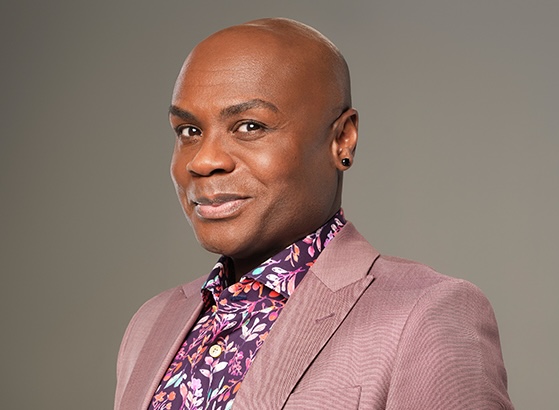

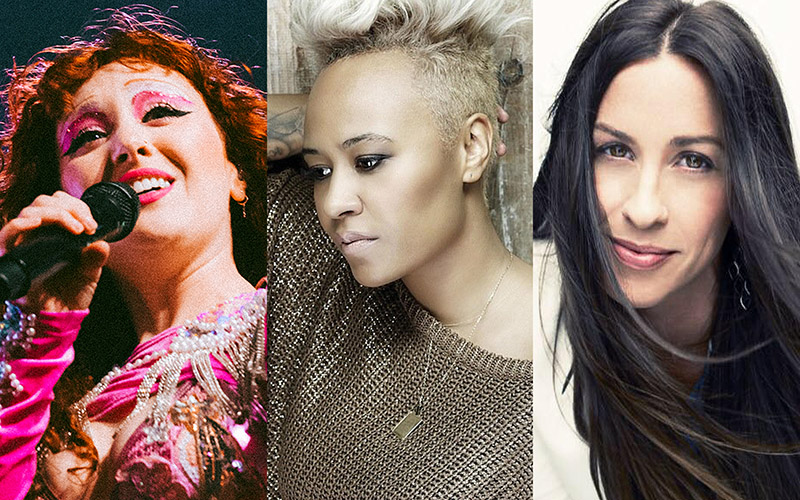












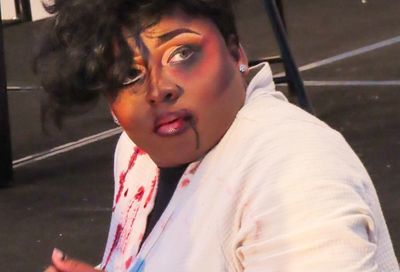
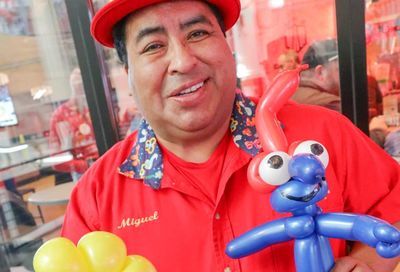
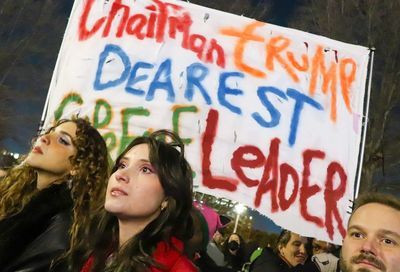
You must be logged in to post a comment.